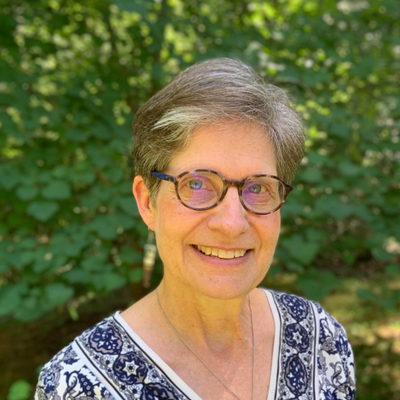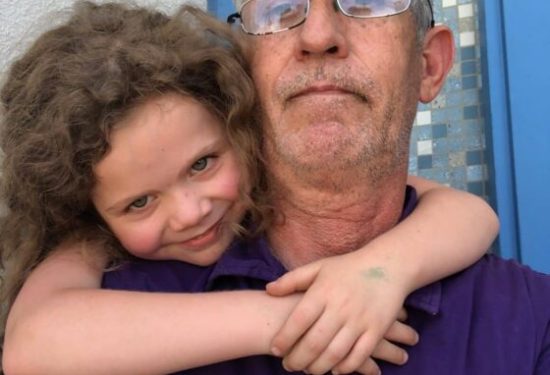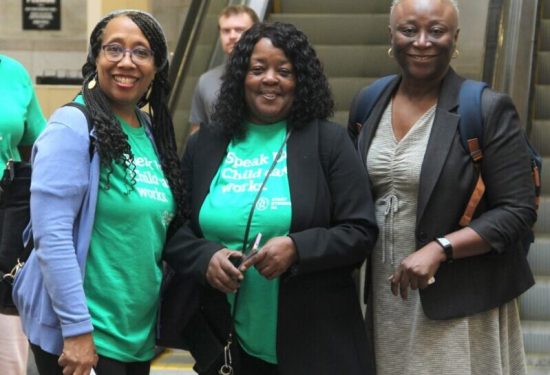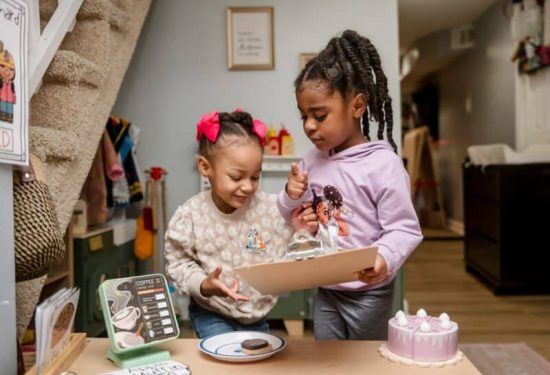Child care providers embody the gratitude, caring, and community we celebrate on Thanksgiving. After long days of caring for children and supporting America’s working families, many extend their day by advocating for and supporting other child care providers in their networks, states, and nationally through their work with Home Grown. Here are just a few of the many providers we are grateful for:
Shay Jackson, owner of Modern Early Learning Academy in Winston-Salem, North Carolina, says her work on Home Grown’s Licensing Work Group, “has allowed [her] to influence policy changes that prioritize the safety and well-being of children in home-based child care settings.” Shay also leads a listening and support group of home-based child care providers (in partnership with the North Carolina Childhood Foundations Care and Learning initiative), who meet monthly to share resources, expertise and care for one another. “A lot of providers just feel undervalued and isolated,” she says. “Just getting together and listening to each other and helping each other is a huge boost to our mental health.” This month, in recognition of Shay’s efforts to advocate for young children, their families, and other providers, the North Carolina Early Education Coalition presented Shay with an Outstanding Early Education Advocate Award.
After 20 years of taking care of children in her Philadelphia home, Diane Gardner, now spends most of her time leading the Quality Influential Professionals child care network. “Some of the providers are so stressed that they are ready to go get a job at McDonald’s. My goal is to empower them, help them get funding, and teach them how to apply for subsidies or use the food program. It’s so important for us home-based providers to to see each other and hold each other up because we are the heart and soul of child care.”
Carmela Enriquez, a Colorado-based FFN caregiver, couldn’t agree more. Carmela supports Spanish-speaking FFN caregivers throughout her community with resources, translation, and reassurance. “Being able to communicate in our home language enables me to explain to my peers that when you join these programs, you are not in danger. Providers need motivation, connection, and real support from someone who can guide us around the obstacles that arise for any child care provider trying to sustain the work they do.”
Gladys Jones, who is a provider advisor of Home Grown, also champions the needs and expertise of home-based child care providers in her work with ECE On the Move. Gladys recently received a Community Change Champion Award for her work as an Emerging Change Champion who propels the community toward a democracy and economy where everyone can thrive. “I started out as an advocate,” she says. “Then I became an activist. And now I’m a revolutionary. We child care providers are raising the leaders of the future. We need to have a say in what we are doing and in how quality child care is defined, especially in our low-income communities. We create environments of love and care and education that are essential to our economy.”
Benu Chhabra, a member of Home Grown’s Provider Insight Panel, recently created just such an environment this time for child care providers by hosting a daylong session titled “Family Child Care Educator Nutrition, Health, and Wellness Day” at the CACFP Roundtable in Long Beach, California. She taught participants how to successfully use the federal Child and Adult Care Food Program, how to advocate for better food program policy, and, importantly, empowered other providers to prioritize their own health and wellness!
Deborah Young, who has worked as an FFN caregiver, child care center owner, and licensed home-based provider over the course of her 40-year career caring for children, now organizes networks of child care support among refugee, asylee and immigrant women who help care for each other’s children so that these newcomers can go to work, school, or English class. She also teaches college classes in child development and cares for her own grandchildren and, sometimes, the children of her students. “Caring for children is my identity,” she says. “It is the way I bring social, ecological, and language justice to the world we all share.”
This Thanksgiving, we’re grateful for Shay, Diane, Carmela, Gladys, Benu, Deborah, and the thousands of other child care heroes across our communities who inspire resilience and joy in our children and lift the capacity and confidence of the home-based child care workforce. Thank you for sharing the bounty of your compassion and your wisdom!




